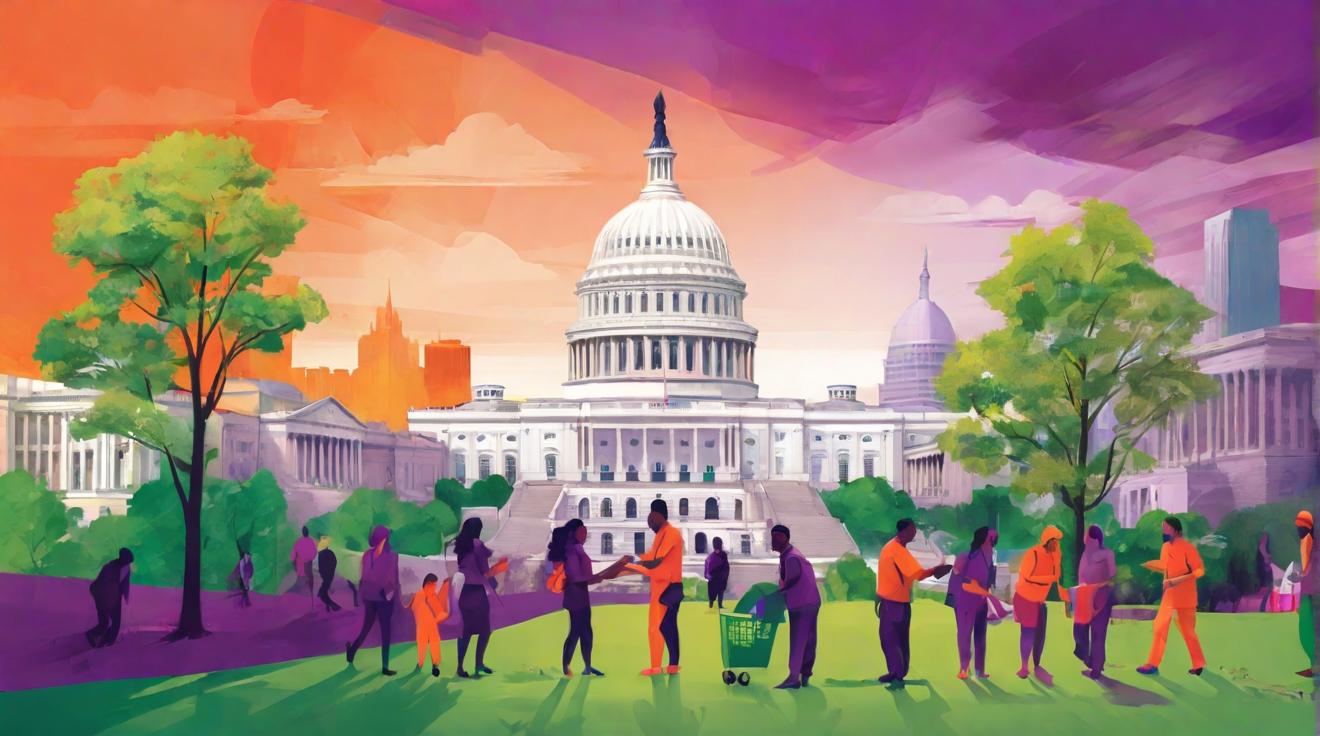Seattle's Gig Worker Minimum Wage Law Faces Potential Changes Amidst Business and Driver Concerns
Seattle's gig worker minimum wage law, enacted just three months ago, is already under scrutiny by the Seattle City Council committee. The law, designed to ensure higher pay for app-based delivery workers, might be amended or repealed due to its unforeseen impacts on small businesses and delivery drivers.
"The options as I see on the table right now are do nothing, fix the existing legislation, or repeal the legislation," Council president Sara Nelson remarked, emphasizing that inaction is not favorable.
Since the law took effect in January, some food delivery platforms like DoorDash have introduced a $5 fee, stirring mixed reactions. While a faction of delivery drivers reports improved earnings, others, along with small business owners, lament over the negative ramifications.
Impact on Small Businesses
Proprietors like Becky Yoshitani of Hurry Curry and Uttam Mukherjee of Spice Waala have voiced their dilemmas, attributing a sharp decline in customer orders to the new ordinance. "We are now 20-40% below where we were last year," Yoshitani disclosed, highlighting how the additional costs for food, rent, and labor necessitated a reliance on more deliveries—which the ordinance now hampers.
Mukherjee's concern echoes the sentiment, indicating a 30-40% dip in delivery business since the ordinance's implementation, pushing his establishment from marginally profitable to unprofitable. Such testimonies underscore the tension between sustaining employee wages and grappling with decreased delivery orders.
The DoorDash Statement and Chamber of Commerce Survey
A DoorDash spokesperson reported a loss of about $1 million in revenue for Seattle businesses by late February. Complementing this, a survey by the Seattle Metropolitan Chamber of Commerce found that 97% of the city's restaurants are in favor of repealing the delivery pay ordinance, showcasing the vast disapproval from the business sector.
Potential Amendments and Driver Responses
In efforts to mitigate the situation, committee members mulled over potential amendments, such as slashing mileage rate reimbursements or reducing the minimum wage from approximately $26 an hour to just under $20. However, drivers like Henry Morales argue that the new pay structure benefits them, stressing the importance of giving the law more time to iron out initial hiccups.
"This bill was written by workers for workers over years with lots of feedback from many different stakeholders and it is working as intended," argued delivery worker Happy Israel, calling for the preservation of the law.
Councilmember Tammy Morales echoed the need for patience and further data before rushing into modifications. She also highlighted the necessity to scrutinize fee increases imposed by app companies, accusing these corporations of attempting to manipulate the political process.
Looking Forward
As Seattle navigates the complexities of gig worker compensation, the balance between protecting employment rights and ensuring business sustainability remains a contentious issue. The impact of any decision will resonate not only within the city but could set a precedent for gig economy regulations nationally.
Analyst comment
This news can be seen as negative. The potential changes to Seattle’s gig worker minimum wage law have created concerns for businesses and drivers. Small businesses have reported a decline in customer orders and decreased profitability, while a DoorDash spokesperson revealed a significant revenue loss for Seattle businesses. The Seattle Metropolitan Chamber of Commerce found that the majority of restaurants are in favor of repealing the law. Potential amendments are being considered, but some drivers argue that the law benefits them. The market’s future will depend on the decision made by the Seattle City Council and its impact on the gig worker compensation landscape.













